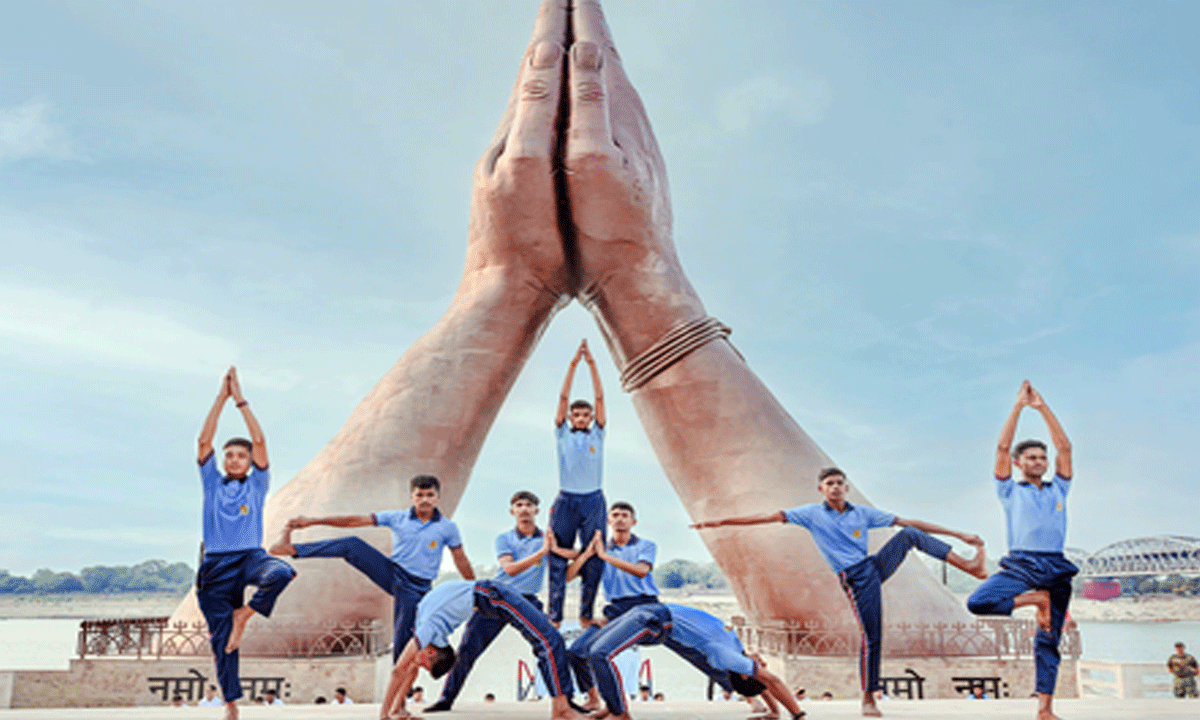Unable to Sleep Well? Yoga, Tai Chi, and Walking May Help, Says Study
Struggling with insomnia? A new study suggests that exercises such as yoga, tai chi, walking, and jogging may significantly improve sleep quality and serve as a primary treatment strategy for poor sleep.

New Delhi: Struggling with insomnia? A new study suggests that exercises such as yoga, tai chi, walking, and jogging may significantly improve sleep quality and serve as a primary treatment strategy for poor sleep.
Table of Contents
Study Supports Exercise as Key Insomnia Treatment
Published in the journal BMJ Evidence-Based Medicine, the findings support using physical activity as a frontline therapy for sleep issues, especially when conventional options may not be ideal.
Also Read: Palani, Bhatnagar, and Klair Elected to ICC Chief Executives’ Committee
Insomnia is defined by difficulty falling asleep, staying asleep, and waking up too early. It is often linked to an increased risk of serious health conditions, including dementia and cardiovascular disease.
Limitations of Current Treatments
While drug treatments for insomnia are widely used, they often come with undesirable side effects. On the other hand, Cognitive Behavioural Therapy (CBT)—a gold-standard approach—is not always accessible due to a shortage of trained therapists, noted researchers from Beijing University of Chinese Medicine, China.
“The findings of this study underscore the therapeutic potential of exercise interventions in treating insomnia,” said Zhao-lan Liu, corresponding author.
“Their role may extend beyond support therapy to serve as viable primary treatment options.”
Meta-Analysis of Multiple Therapies
The team conducted a meta-analysis of 22 randomised clinical trials involving 1,348 participants and 13 different treatment methods for insomnia. Seven of these were exercise-based interventions:
- Yoga
- Tai Chi
- Walking or Jogging
- Aerobic + Strength Exercise
- Strength Training Alone
- Aerobic Exercise + Therapy
- Mixed Aerobic Exercises
Other methods studied included CBT, sleep hygiene, Ayurveda, acupuncture, and massage.
Key Findings: Yoga, Tai Chi, and Walking Shine
- Yoga increased total sleep time by almost 2 hours, improved sleep efficiency by 15%, cut down time awake after falling asleep by nearly 1 hour, and shortened sleep latency by about 30 minutes.
- Walking or jogging reduced insomnia severity by almost 10 points.
- Tai chi improved total sleep time by over 50 minutes, reduced wakefulness by 30+ minutes, and shortened sleep latency by 25 minutes.
Exercise as a Practical Solution
The researchers emphasized the cost-effectiveness, safety, and accessibility of these physical exercises. They urged healthcare systems to consider integrating these exercise-based solutions into primary care and community health programmes.
“This study provides comprehensive evidence that could shape future clinical guidelines for insomnia treatment,” Liu concluded.
